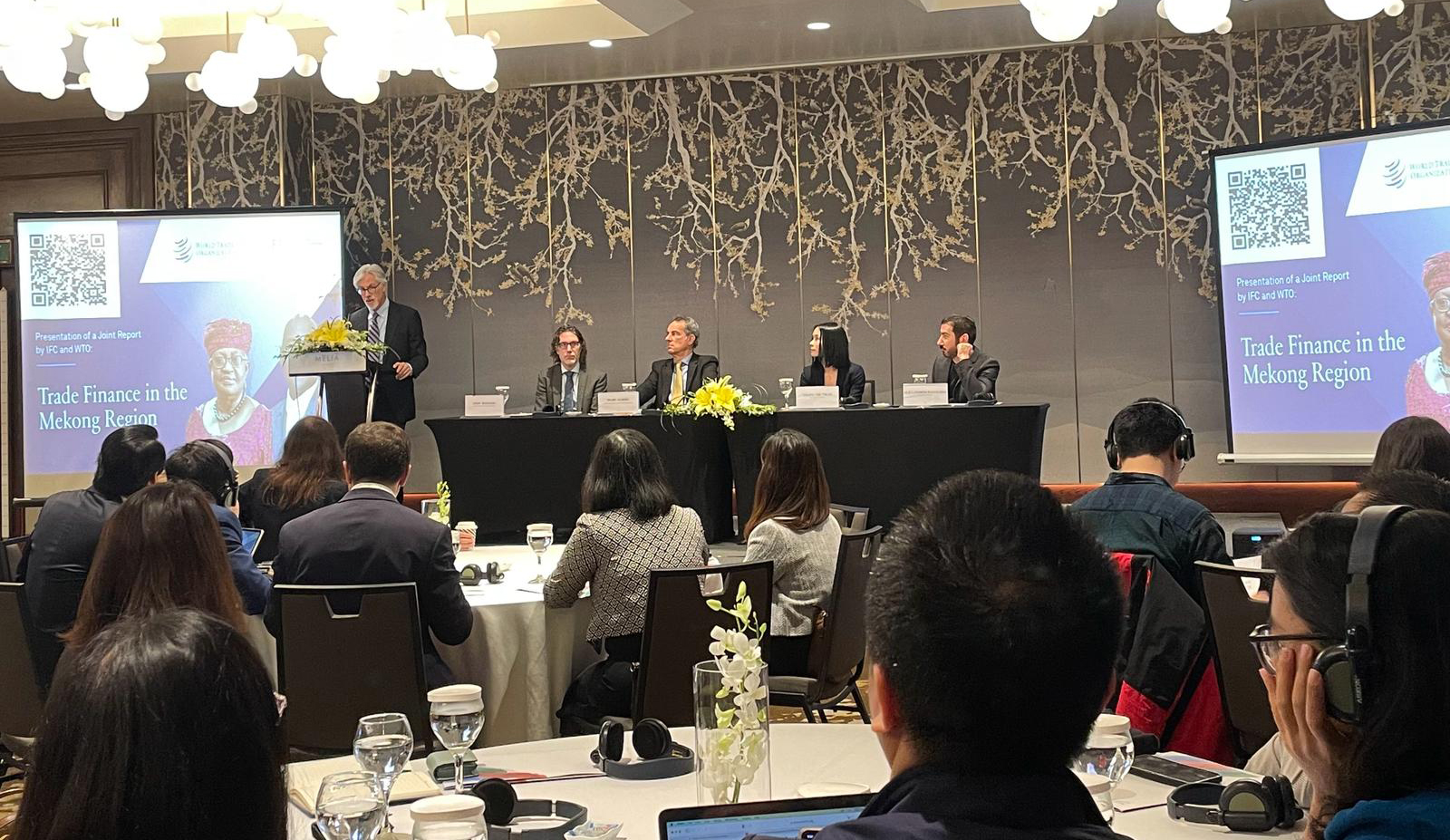
Hanoi, Viet Nam, February 22, 2024—Improving access to affordable trade finance could increase imports and exports by up to 6 and 9 percent respectively in Viet Nam, reveals a new report by the International Finance Corporation (IFC) and the World Trade Organization (WTO). This represents an annual increase in merchandise trade of $55 billion.
The study – Trade Finance in the Mekong Region – a second in a series of regional trade finance surveys after West Africa, analyzes the trade finance ecosystem in Viet Nam, Cambodia, and Lao PDR and provides insights into how international trade can be increased with better support from financial institutions. According to the report, increasing coverage is more important than reducing the cost of trade finance.
As detailed in the report, local trade finance in Viet Nam is scarce, costly, and segmented, offering just traditional services. In 2022, domestic banks supported only 21 percent of the country's total merchandise trade of $731 billion. Notably, banks are more likely to support local enterprises engaged in intra-regional trade than large multinationals engaged in global trade. The subsidiaries of multinationals in high-growth, high-value sectors such as electronics and garments rely less on local bank-intermediated trade finance.
"Since local trade finance in Viet Nam is currently concentrated in domestic manufacturers, greater coverage of local trade finance will not only help improve the competitiveness of Vietnamese importers and exporters but more importantly, will boost production, deepen global supply chain integration and spread the benefits of trade more evenly across local producers," said Thomas Jacobs, IFC Country Manager for Viet Nam, Cambodia and Lao PDR.
Importers and exporters cited high collateral requirements and onerous application processes among the main reasons why they did not seek support from local banks. On the supply side, Vietnamese banks rejected an average of 12 percent of trade finance requests – mainly from small and medium enterprises – accounting for around $20.3 billion in unmet demand in 2022. Rejections are attributed to a lack of collateral and high credit risk.
The report recommends developing instruments like supply chain finance and innovative digital offerings to reduce costs and improve access. This would in turn require stronger regulatory frameworks that address collateral requirements, digital transactions, central bank conditions and accountability frameworks. The report also recommends increasing awareness of how to access trade financing among smaller firms and local suppliers.
About IFC
IFC — a member of the World Bank Group — is the largest global development institution focused on the private sector in emerging markets. We work in more than 100 countries, using our capital, expertise, and influence to create markets and opportunities in developing countries. In fiscal year 2023, IFC committed a record $43.7 billion to private companies and financial institutions in developing countries, leveraging the power of the private sector to end extreme poverty and boost shared prosperity as economies grapple with the impacts of global compounding crises. For more information, visit www.ifc.org
Stay Connected with IFC on social media
Contacts
Stay Informed
Sign up to have customizable news & updates sent to you.